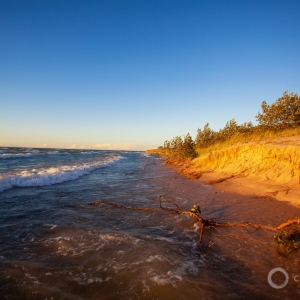The Stream, November 19, 2020: New Report Explores 12 Major Sites of Pollution in Georgia
GLOBAL DAILY WATER NEWS
- An environmental coalition in the state of Georgia releases a new report on the state’s most polluted waterways.
- A recent economic analysis of a proposed dam in Australia found it could have a costly environmental impact.
- Governors in California and Oregon take control of four controversial dams on the Lower Klamath River.
- The U.N. launches a new fund to increase global sanitation and hygiene.
A new report out of the state of Washington found almost 50 waterways in the state are severely contaminated.
“Some real problem areas like the Palouse will never be brought up to standard.” – Ron Pine, director of the Washington state ecology department. A new state water quality report found that the Palouse River basin is one of the top two most polluted bodies of water in the eastern part of Washington, KHQQ6 reports. The report found that 47 of the state’s 154 major water bodies are unsafe for human contact and could kill marine life. Pine said he is doubtful that the Palouse and other Washington waterways can be cleaned up in time to meet the goals of the Clean Water Act of 1967 but maintains that progress has been made since the Clean Water Act was written.
IN RECENT WATER NEWS
HotSpots H2O: In a Year of Unrelenting Floods, Yet Another Storm Hits Central Vietnam – Tropical storm Etau passed through central Vietnam last week as Typhoon Vamco, which struck the Philippines the same week, arrived Sunday. After months of intense storms and flooding, Etau is the twelfth to hit the country this year and the eighth in the past month.
Proposed Dam in Australia Could Have Costly Environmental Impacts
An economic analysis found that the proposed Urannah dam in north Queensland could return as little as 26 cents for every dollar invested. The Guardian reports that a preliminary business case for the dam claimed the project would return $1.70 for every dollar invested but a review of the case found that it failed to take into account environmental costs. The initial analysis of the dam’s benefit also relied on many “flawed assumptions.” One case for the dam was that it would stop an additional $700 million pipeline from being built, even though the proposed pipeline had no formal approval or funding.
TODAY’S TOP WATER STORIES, TOLD IN NUMBERS
$450 MILLION
California Gov. Gavin Newsom and Oregon Gov. Kate Brown signed a deal on Tuesday to take control of four aging dams along the Lower Klamath River, The Sacramento Bee reports. This is the latest push by the governors to push forward their $450 million plan to remove the dams, which are currently owned by PacifiCorp—a utility company controlled by financier Warren Buffett’s Berkshire Hathaway conglomerate. The company has been accused of blocking salmon runs down the river that are considered vital by Native American tribes in California. Local residents and property owners in Northern California have opposed the dam removal project for years and say the demolition process would damage the river and plummet riverside property values.
$2 BILLION
The U.N. launched the Sanitation and Hygiene Fund on Tuesday, which aims to raise $2 billion over the next five years to mitigate sanitation, hygiene and menstrual health crises around the world. The Fund will focus on expanding household sanitation, ensuring menstrual health and hygiene, providing sanitation and hygiene in schools and healthcare facilities and supporting innovative sanitation solutions. Over four billion people globally lack access to basic sanitation and hygiene technology, the U.N. said in their announcement.
ON THE RADAR
The Georgia Water Coalition released their annual Dirty Dozen report, which calls attention to politics, policies and issues surrounding water quality in Georgia. This year’s report includes seven repeat offenders, including Rayonier pulp mill, which has been on the list eight times for polluting the Altamaha River. Other issues covered in the report include sewage discharge, agricultural pollution and mining pollution. The report includes recommendations for policy change and urge Georgia’s legislators to take action.
Jane is a Communications Associate for Circle of Blue. She writes The Stream and has covered domestic and international water issues for Circle of Blue. She is a recent graduate of Grand Valley State University, where she studied Multimedia Journalism and Women, Gender and Sexuality Studies. During her time at Grand Valley, she was the host of the Community Service Learning Center podcast Be the Change. Currently based in Grand Rapids, Michigan, Jane enjoys listening to music, reading and spending time outdoors.







Leave a Reply
Want to join the discussion?Feel free to contribute!